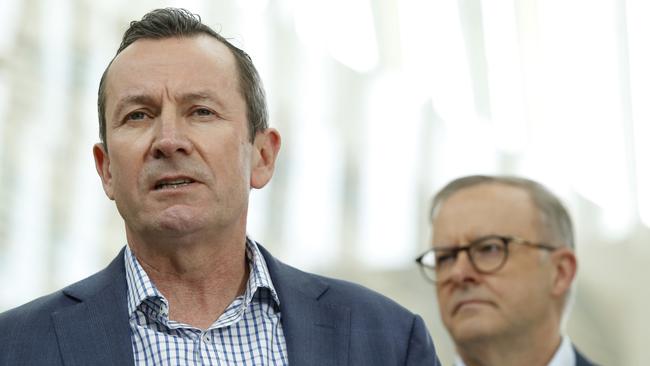
Western Australia’s most popular leader in its history – whose landslide 2021 state election victory left the Liberal and National parties in ruin – played a huge hand in delivering Anthony Albanese majority government.
Albanese had to wait for the red wave in Perth – where results rolled in two hours behind those on the east coast – to deliver Labor the Liberal seats of Swan, Hasluck, Tangney and Pearce, before claiming majority government on election night.
McGowan’s “X-factor” significantly boosted federal Labor’s stocks in Western Australia, and ALP strategists are concerned that losing his popular appeal in the west will make it tougher to retain seats.
But peel away the veneer of popularity and McGowan’s legacy is mixed.
He benefited from bumper mining royalties, a close relationship with the billionaire owner of The West Australian newspaper, Kerry Stokes, popular local support for draconian Covid-19 restrictions, and a weak Coalition.
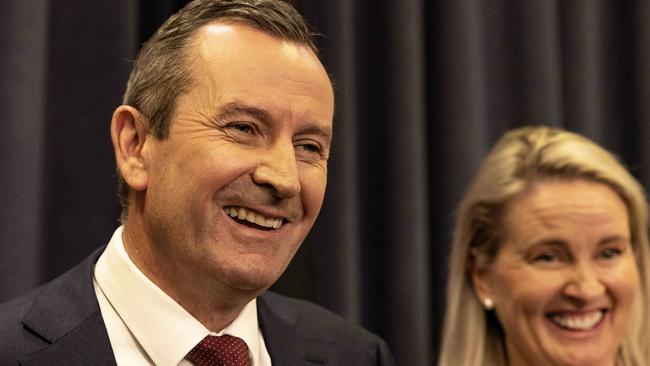
However, the 55-year-old leaves behind questionable records on crime, health, infrastructure, China and social housing.
McGowan’s loyalties to Beijing undermined national efforts for unified resistance against Chinese coercion, foreign interference and cyber attacks.
Labor’s dominance in a state where the Coalition had carved-out a stronghold at recent federal elections is unlikely to stick.
West Australian voters, who were fiercely loyal to McGowan, have traditionally differentiated between state and federal politics.
While the historic trend was reversed in 2022, few believe that Labor will maintain its lead of nine seats to five over the Liberals.
McGowan’s importance to federal Labor was on show at last year’s ALP campaign launch held in Perth, where he took centre stage and introduced Albanese as the “next prime minister of Australia”.
Adding to the loss of McGowan, WA ALP director and federal campaign mastermind Tim Picton quit shortly after the May election to take up a job with Mineral Resources.
The saving grace for Labor at both federal and state levels is that their political opponents remain in disarray.
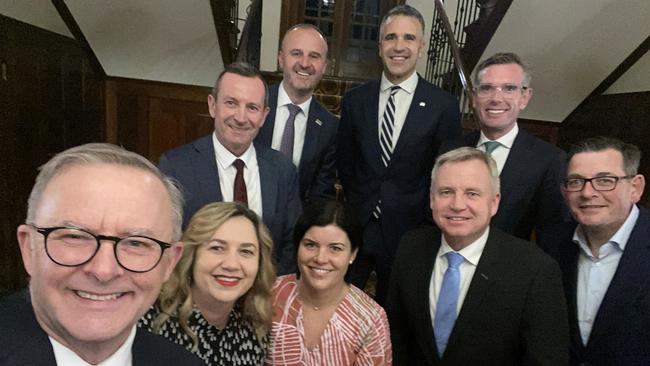
As WA Premier, McGowan was unashamedly parochial and cast a long shadow over the state, serving in the top job for six years and as opposition leader for five.
To the delight of Sandgropers, McGowan took on Queensland billionaire Clive Palmer, waged war with eastern states over tough pandemic restrictions, and secured a GST windfall for WA.
Ironically, it was Scott Morrison’s formation of national cabinet in March 2020 that made McGowan a powerful and prominent figure on the national stage.
McGowan’s exit from politics leaves Daniel Andrews and Annastacia Palaszczuk as the only survivors of Morrison’s founding national cabinet.
McGowan, a career politician who used the national cabinet to wage his WA-centric ideology, adopted the most extreme Covid-19 restrictions, shut WA off from the rest of the country and repeatedly disrupted national efforts to adopt an Australia-wide pandemic recovery plan.
The radical approach was lauded in WA, where locals avoided lockdowns throughout the bulk of the pandemic, continued working and enjoyed their freedom.
Albanese, who picked up an additional Senate seat on the back of the McGowan-inspired red wave, will need to channel the WA Premier’s centrist and populist approach to stem bleeding of votes.
The Prime Minister risks facing a harsh reception in WA if he goes too far on industrial relations reforms, prosecutes his social agenda too aggressively and pushes too hard on taxing the resources sector.



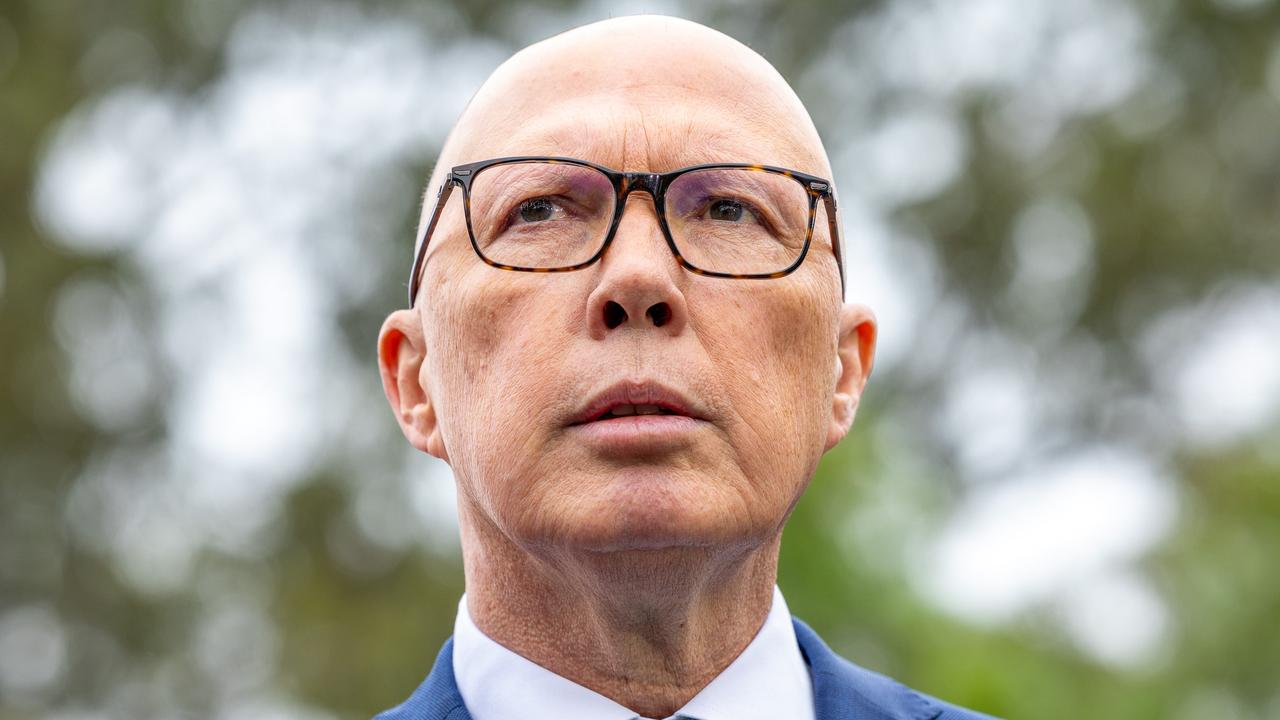
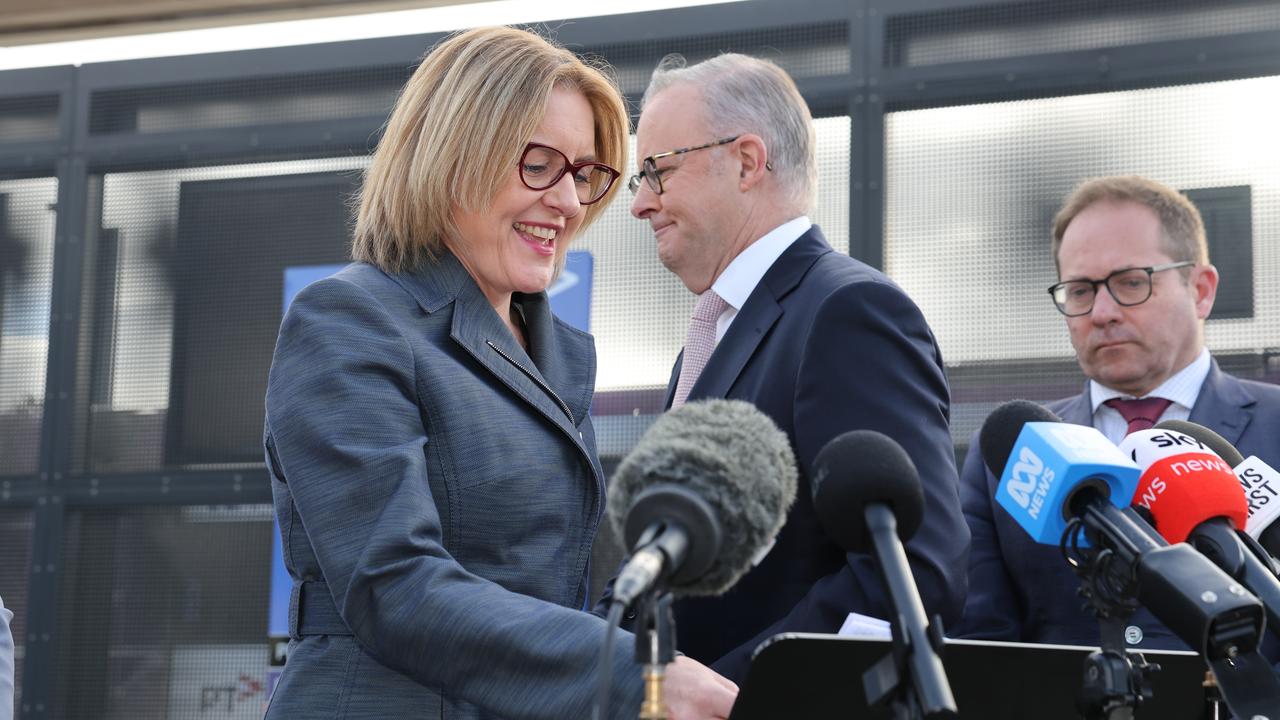
Mark McGowan’s shock departure from politics inflicts a massive blow to the Labor Party’s prospects at the 2025 state and federal elections.